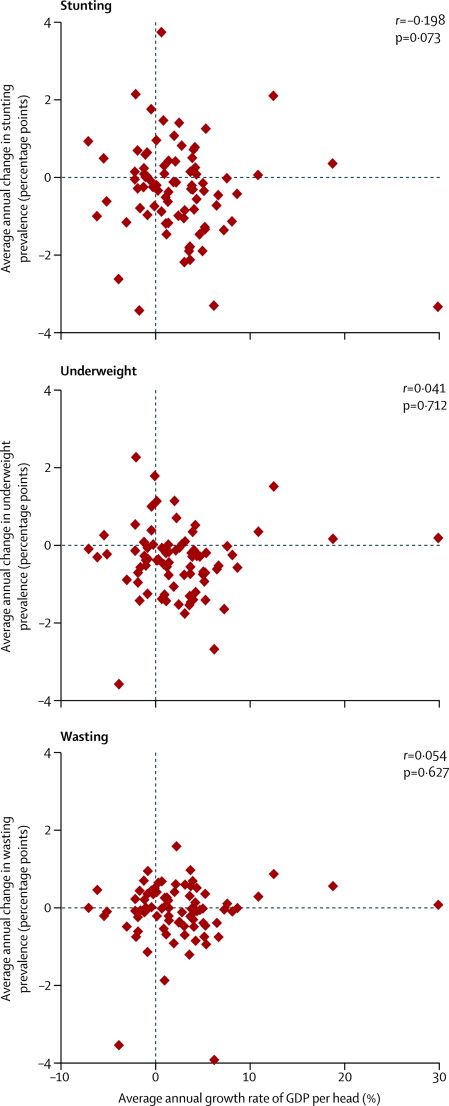Economic growth does not cause child growth… so what does?
— Blog Post — 1 min read
A recent article about child height in the Lancet has been getting wide attention, even at macroeconomist Paul Krugman’s blog. As Sebastian Vollmer and coauthors conclude, in their paper titled “Association between economic growth and early childhood undernutrition: evidence from 121 Demographic and Health Surveys from 36 low-income and middle-income countries,“ “a quantitatively very small to null association was seen between increases in per-head GDP and reductions in early childhood undernutrition, emphasising the need for direct health investments to improve the nutritional status of children in low-income and middle-income countries.”
So, it turns out that GDP growth does not make children taller, on average. This is actually somewhat old news: Angus Deaton showed in 2007 that GDP levels are not correlated with height. At last summer’s child height conference at the Delhi School of Economics, Aparajita Chattopadhyay presented a paper, which is now forthcoming in EPW, showing that economic growth in Indian states is not correlated with children’s height.
So, if economic growth does not cause child growth, what does? Good early life health and net nutrition – including moms getting good things to eat during pregnancy and breastfeeding and a healthy epidemiological environment free from disease and poor sanitation. Money does not appear to be the most important constraint on either of these here in India.
The Lancet article was published along with a comment by Abhijeet Singh, who made this point, and cited some of r.i.c.e.’s work on sanitation and child height along the way: “Public health and nutritional interventions can have an important role in reducing child undernutrition. Spears documents a clear gradient between sanitation and child undernutrition, large enough to statistically explain excess stunting in India compared with sub-Saharan African countries; in another recent study, my co-authors and I also document that the Indian Midday Meals programme in schools leads to catch-up growth to compensate for drought-related nutritional deprivation in early childhood. Although economic growth alone might not accomplish an end to child undernutrition, proven interventions targeted at nutrition might.”
